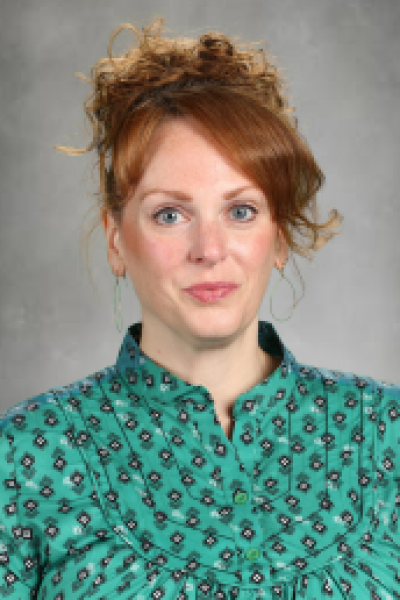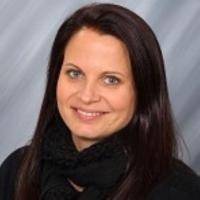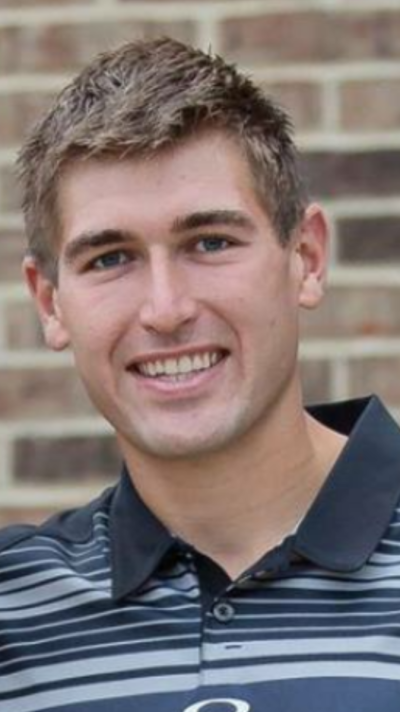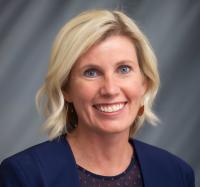Alumni: Partners in education
Getting “hands on” is part of the essential fabric of a University of Northern Iowa education. That’s certainly true for College of Education students, whether the focus is teacher education or preparing for a career in nonprofit organizations or various health-related professions.
Ensuring students have quality experiences with impact requires partnerships that stretch beyond campus and allow our students to observe, learn and practice.
More than 1,000 teachers in school districts across the state and beyond serve as mentor teachers. Associates in nonprofit organizations, health systems and community, social service and faith-based agencies open their doors to College of Education students each semester and during the summer.
“We simply could not deliver our academic programs without the talented community members and alums who serve as clinical preceptors and mentor teachers to our students. It remains an outstanding feature of the COE and UNI,” says Dean Colleen Mulholland.
College of Education alums Destry Sperfslage (‘03, MATR) and Meghan May (‘03, BA) are among the countless mentors and preceptors who have helped numerous students transfer their learnings into practice.
Meghan May, Mentor Teacher
Central Springs Community School District third grade teacher Meghan May says her love of learning influenced both her career choice and her subsequent service as a mentor teacher.
“In the past, I have always enjoyed the process of learning and wanted to work in a profession where each day was different and new. My freshman year in college I was taking some introductory courses and had an absolutely amazing instructor for the Introduction to Teaching course. I knew then I wanted to do what he did, inspire others through education and learning,” says the 2003 alumna with a BA degree in elementary education and minor in educational technology.
 In her career of more than 20 years, May has taught every grade, in some form, from preschool through eighth grade. In addition, she has hosted UNI students for the past 10 years, beginning with students in observation. More recently, she has also worked with student teachers.
In her career of more than 20 years, May has taught every grade, in some form, from preschool through eighth grade. In addition, she has hosted UNI students for the past 10 years, beginning with students in observation. More recently, she has also worked with student teachers.
“Our principal asked me to host a UNI college student for her week-long level 3 placement. Then she wanted to student teach in the same room she did her level III placement. She was a quieter student and needed to be able to build a relationship and feel comfortable with the cooperating teacher and student-teaching classroom,” she explains.
May sees field experience benefitting both mentor and student.
“Practical experience is the most applicable type of experience in any profession. Having the opportunity to observe and participate in a variety of classrooms provides a solid foundation and reference point for young educators beginning their careers. This is the time to see what you are learning in your college courses put into action and how each educator has their own unique approach.
“It is a time to see it all: the good, the bad and the unexpected that happen every day in teaching. This helps young professionals begin to formulate their personal classroom philosophy of teaching. Field experiences and observations provide examples upon which to shape and build their future classrooms,” she says.
“I learn something new every time I host a student,” she adds. “It helps me to grow as an educator. I am able to step back and reflect on what we do as educators.”
Serving as a mentor teacher requires strong partnerships to be successful. May works with Kady Korbel, student teaching coordinator for UNI’s North Central Iowa Center within the Department of Teaching.
“Our district has a wonderful relationship with UNI, in part, due to the work of the student teaching coordinator for our area. She works very hard to formulate relationships with all districts where her student teachers are placed,” she says. “The other aspect is the professional and hard-working student teachers and field experience students that are placed in classrooms. Because of the wonderful students that are sent to our classrooms, and the support of their UNI coordinator, UNI has established that they have high expectations for all students sent out for field experiences and student teaching placements.”
 Korbel, who works with an average of 22 student teachers each semester across 22 districts, says May represents the quality of the mentoring UNI provides. “Meghan has done so much for my student teachers, I cannot begin to share it all. She truly brings a love for teaching, flexibility to allow her student teachers to bring their own style of teaching into the classroom and builds the necessary relationships so her student teachers are comfortable coming to her with questions, reflection and feedback.“
Korbel, who works with an average of 22 student teachers each semester across 22 districts, says May represents the quality of the mentoring UNI provides. “Meghan has done so much for my student teachers, I cannot begin to share it all. She truly brings a love for teaching, flexibility to allow her student teachers to bring their own style of teaching into the classroom and builds the necessary relationships so her student teachers are comfortable coming to her with questions, reflection and feedback.“
The extra time and effort to mentor students brings its own rewards.
“Each time I have hosted a young professional, they always begin pretty hesitant and somewhat unsure of themselves as an educator. During their time I see each of them blossom and grow, establishing how they want to run their classroom,” May says.
“My very first student teacher was this to a 'T.' She was hesitant and unsure and, by the end, she found her enthusiastic teaching voice. Her clear passion for education and teaching was shining through. Student teaching is the time to find how their passion comes through in their teaching.”
Destry Spersflage, Clinical Preceptor
When Destry Sperfslage was considering careers, athletic training seemed a natural fit for the former four-sport West Delaware high school athlete and student.
“I have always had a passion for athletics and I knew I wanted to pursue a career in medicine. Athletic training seemed to be the perfect route for me to pursue a lifestyle where I enjoyed every bit of my day,” he says. “I was never interested in just ‘punching a clock.’ I wanted to bring value to my workplace and serve a community of people.”
Sperfslage earned his BA degree in athletic training from University of Northern Iowa and a master’s in kinesiology from Southern Illinois University. After working for the Denver Broncos, he and his wife Haleigh jumped at an opportunity to relocate back to northeast Iowa for a position with Taylor Physical Therapy in Waverly, Iowa.
 As director of athletic training and sports medicine, Sperfslage leads the sports rehabilitation effort at Taylor and also serves as athletic trainer for Waverly Shell Rock High School. Between providing care, working with student athletes and covering athletic events, 12-hour days are not unusual. Yet Sperfslage also manages to find time to serve in another role.
As director of athletic training and sports medicine, Sperfslage leads the sports rehabilitation effort at Taylor and also serves as athletic trainer for Waverly Shell Rock High School. Between providing care, working with student athletes and covering athletic events, 12-hour days are not unusual. Yet Sperfslage also manages to find time to serve in another role.
When Tricia Schrage, assistant professor, athletic training, and coordinator of clinical education, heard he had moved back to the area, she asked him if he’d be a clinical preceptor for the UNI athletic training program. He quickly agreed and has served as a preceptor for 20 undergraduate and graduate students since 2015.
“I knew how important it was for me to have the preceptors I had while in undergrad, and I wanted to be able to ‘return the favor,’” Sperfslage says, calling these clinical experiences invaluable. “While going through undergrad, I appreciated seeing and understanding in real time how the information we learned in the classroom was utilized to serve our patient population of physically involved individuals.”
Sperfslage works with students during the academic year. “I enjoy the daily interactions with students in learning how to take the didactic knowledge they learn, and put it into practice within the real world. I love picking their brains to learn their thought processes on what is learned in the classroom and how to put that knowledge into action serving patients.”
Clinical experiences require students to engage, he notes. “You can’t take a back seat and just ‘go through the motions’ while you are at your clinical site. There is always something to learn, whether it is ‘I really like that, I could use that in the future’ or ‘I didn’t care for that interaction, I think if I were in that situation I would have approached it this way…’"
The certified athletic trainer appreciates being part of and witness to each student’s development.
“I always feel the greatest growth I see is in their confidence in using their skills. I think that comes with the increased aptitude from fully understanding what they have learned in the classroom and meshing that knowledge with what their experiences at their clinical site also teach them,” he says.
“So often students come in with great understanding of the concepts and have outstanding working knowledge, but don’t feel comfortable with patient interactions solely because they lack the confidence to execute the scenario as it plays out in real time,” he adds. “It is always fun for me to see their growth in this area as they progress through their time with me at their clinical site.”
Schrage says the contributions of preceptors like Sperfslage ensure students are getting the critical experiences they need to fulfill requirements for certification.
 “Preceptors have a significant role in helping students translate their knowledge and skills into clinical practice. They offer the opportunity to engage in patient care with a variety of health conditions in a supervised learning environment, which facilitates competence and confidence before transitioning into professional practice,” says Schrage.
“Preceptors have a significant role in helping students translate their knowledge and skills into clinical practice. They offer the opportunity to engage in patient care with a variety of health conditions in a supervised learning environment, which facilitates competence and confidence before transitioning into professional practice,” says Schrage.
“UNI is extremely fortunate to have an abundance of preceptors, including Destry, who are passionate educators. Destry has been a tremendous role model and resource for our students. He is talented, innovative, and delivers outstanding patient-centered care.”
